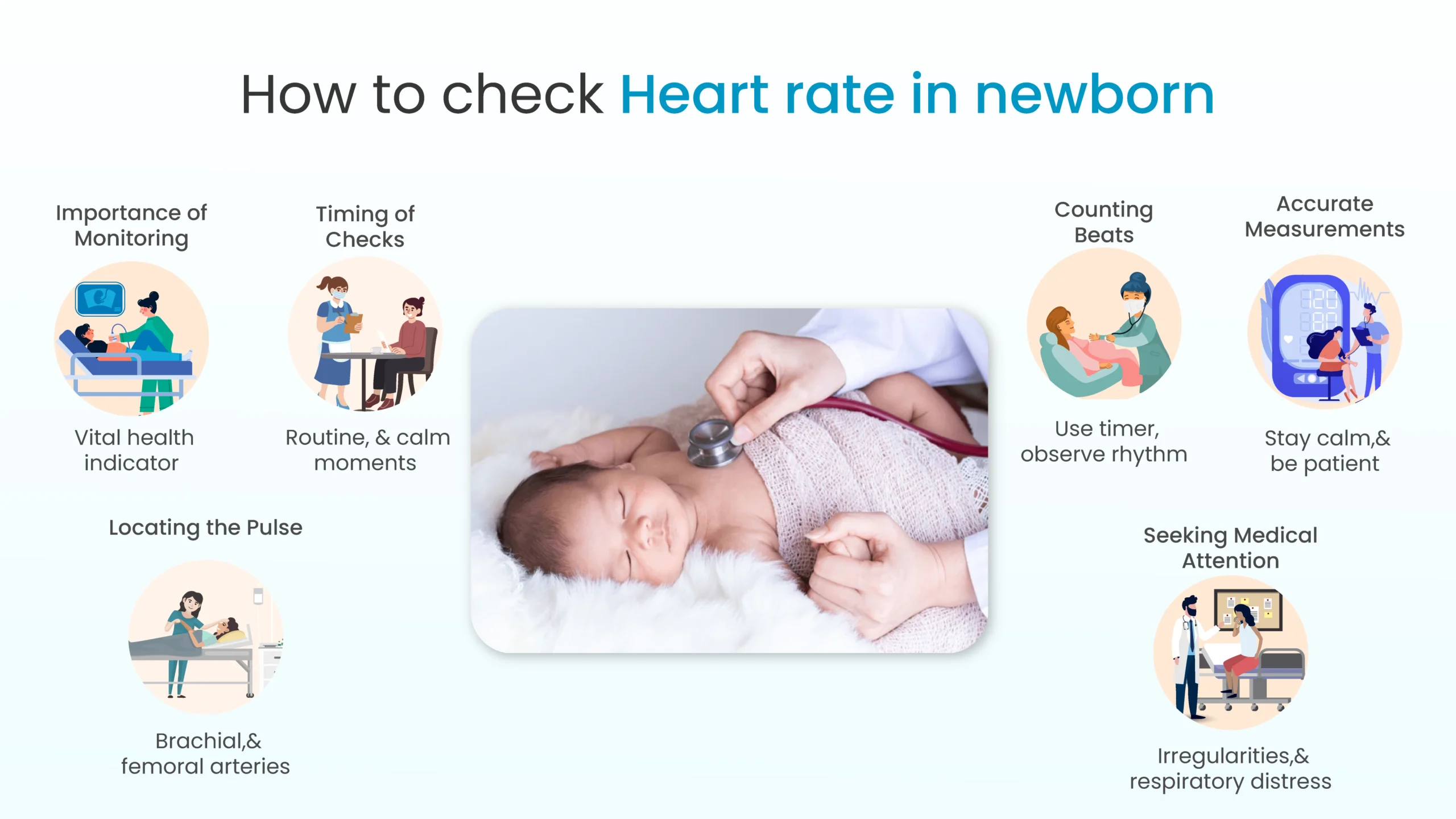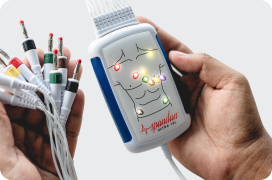
Author:- Mr. Ritesh Sharma
Welcoming a newborn into your life is a highly responsible task. You have to ensure that you take care of all aspects of your baby’s health. In this condition, one question must come to your mind, i.e. how to check heart rate in newborn. The heart of your newborn is very delicate. This fragile ticker pumps life into every part of the being for your little one. Hence, taking care of it becomes your duty. But, how do you do that? How to check heart rate in newborn. Moreover, if you suspect any irregularities with their heart rate, what should you do? These are the questions that come to the mind of all parents.
In this blog, we will try to examine these questions and offer some useful insights into them to you. So, if you are worries about how to check heart rate in newborn, you will be educated and empowered by this blog.
Why Monitor a Newborn's Heart Rate?
Before we get into the process of monitoring a newborn’s heart rate, we must investigate, we do we even need to monitor a newborn’s heart rate. The heart rate of a newborn serves as a vital indicator of their overall health and well-being. Unlike adults, infants have faster heart rates, which can vary depending on their age, activity level, and whether they are awake or asleep. Furthermore, sometimes even developing babies get affected by heart diseases such as Fetal Bradycardia and Fetal Tachycardia in the mother’s womb. Monitoring the heart rate helps identify any irregularities that could signal underlying health concerns such as infections, heart defects, or respiratory issues.
When to Check the Heart Rate?
Another important question that must come to your mind when thinking of the health of your newborn is when to check his/her heart rate? We must inform you that checking a newborn’s heart rate should be a routine part of caring for them, especially during the first few weeks of life when they are most vulnerable. It’s a good practice to monitor the heart rate during calm moments when the baby is relaxed and not crying, as crying can temporarily elevate the heart rate. Additionally, if your baby appears lethargic, has difficulty breathing, or shows signs of distress, it’s essential to check their heart rate promptly.
How to Check Heart Rate in Newborn?
Now, comes the most important question- how to check heart rate in newborn? The answer to this question is much more nuanced and elaborate than you might have thought. Below, we have covered all the points you must keep in mind while checking the heart rate of your newborn.
- Find the Pulse: The pulse can be felt in several locations on a newborn’s body, but the most commonly used sites are the brachial artery in the inner elbow and the femoral artery in the groin area. Gently place your fingertips on either of these spots to locate the pulse.
- Use Gentle Pressure: Apply gentle pressure with your fingertips until you feel a pulsating sensation. Be careful not to press too hard, as this can interfere with blood flow and give inaccurate readings.
- Count the Beats: Once you’ve located the pulse, use a timer or watch with a second hand to count the number of beats felt within a 60-second interval. Alternatively, you can count the beats for 15 seconds and then multiply by four to calculate the heart rate per minute.
- Observe Regularity and Rhythm: Pay attention to the regularity and rhythm of the heartbeat. A steady and consistent rhythm is considered normal, while irregularities such as skipped beats or rapid fluctuations may warrant further investigation.
- Record the Findings: Keep track of the newborn’s heart rate along with the date and time of each measurement. This record can be valuable for tracking trends over time and providing useful information to healthcare professionals if needed.
Tips for Accurate Measurements
For accurate measurements of the heart rate of your newborn, we have shared a few tips that you can apply:
- Stay Calm: It’s natural for parents to feel anxious when checking their baby’s heart rate, but try to stay calm and relaxed to avoid inadvertently affecting the results.
- Practice Patience: Newborns can be wiggly and squirmy, making it challenging to get an accurate reading. Take your time and be patient while locating the pulse.
- Use the Right Technique: Ensure that you’re using the correct technique for finding the pulse and counting the beats to obtain accurate measurements.
- Repeat if Necessary: If you are having difficulty finding the pulse or if the baby is particularly active, don’t hesitate to try again or check a different pulse hea
When to Seek Medical Attention
As we mentioned earlier, newborn babies tend to have a faster heart rate than normal adults. Therefore, if you find any abnormalities in their heart rate, you must not instantly fret and seek medical attention. However, there are certain scenarios where seeking medical attention for the newborn becomes paramount. Let’s learn about those scenarios:
- Persistent rapid heart rate, i.e. tachycardia, or slow heart rate i.e. bradycardia outside the normal range for your baby’s age.
- Irregular heartbeat or noticeable changes in rhythm i.e. cardiac arrhythmias of different arrhythmia classifications.
- Bluish discoloration of the skin, especially around the lips and fingertips.
- Difficulty breathing or signs of respiratory distress.
- Lethargy, excessive sleepiness, or poor feeding.
In conclusion, the answer to the question of how to check heart rate in newborn is rather intricate. It involves a series of steps, such as finding the pulse, using gentle pressure, counting the beats, observing regularity and rhythm, and recording the findings. While checking the heart rate of your newborn, you must keep all the aforementioned tips in mind. Furthermore, if you find any of the above-mentioned symptoms prevalent in your newborn then you must seek medical help immediately.





